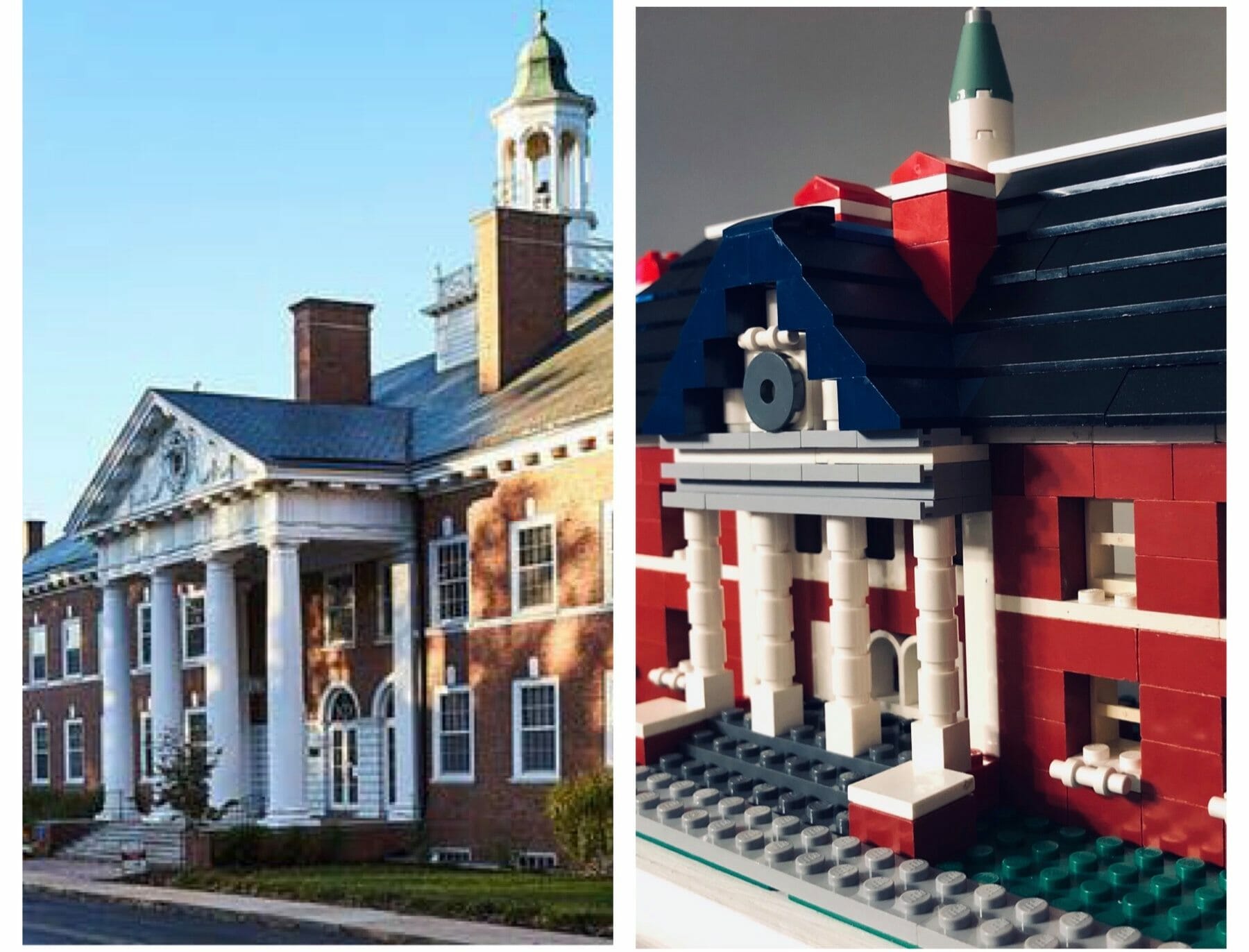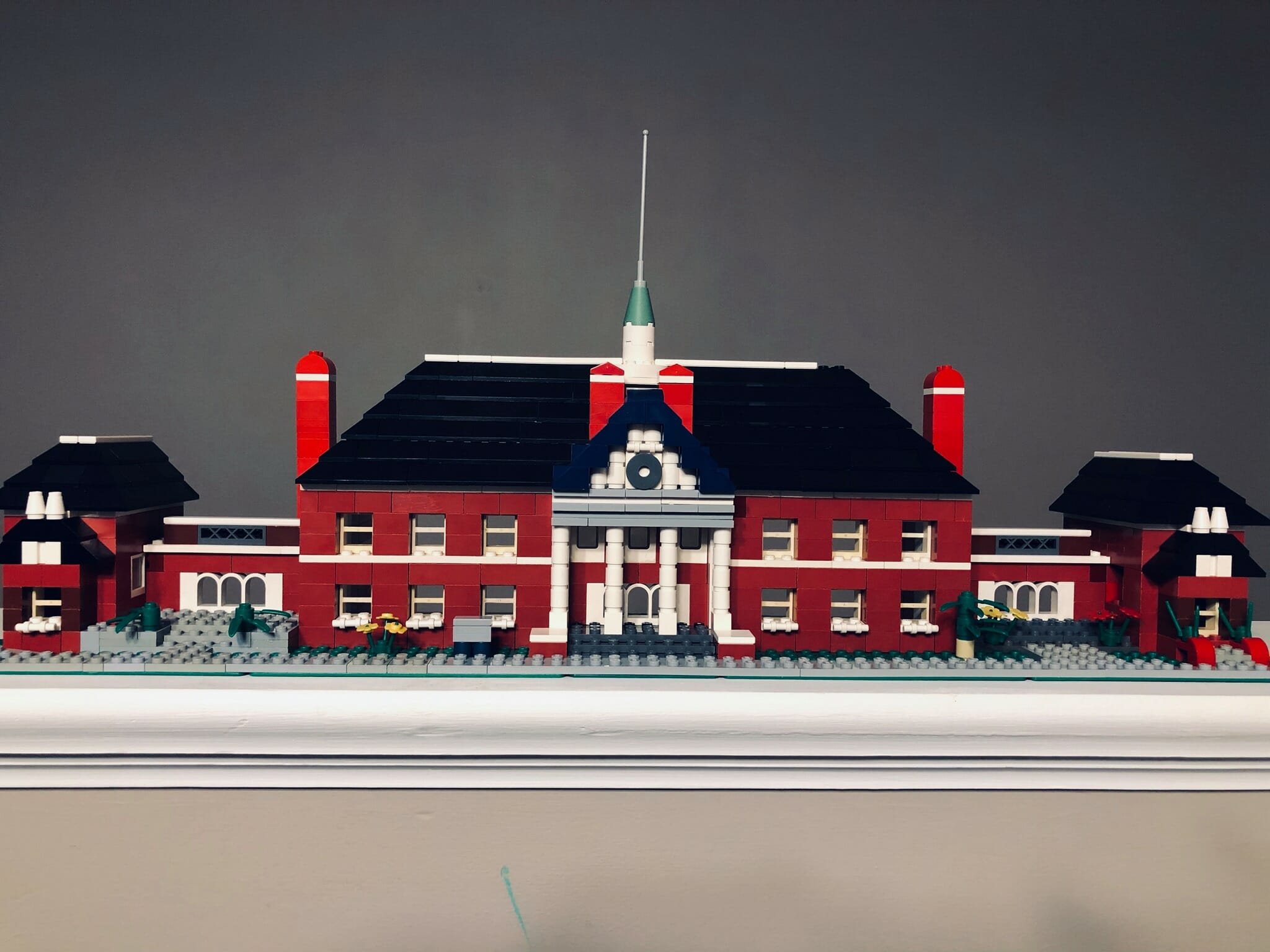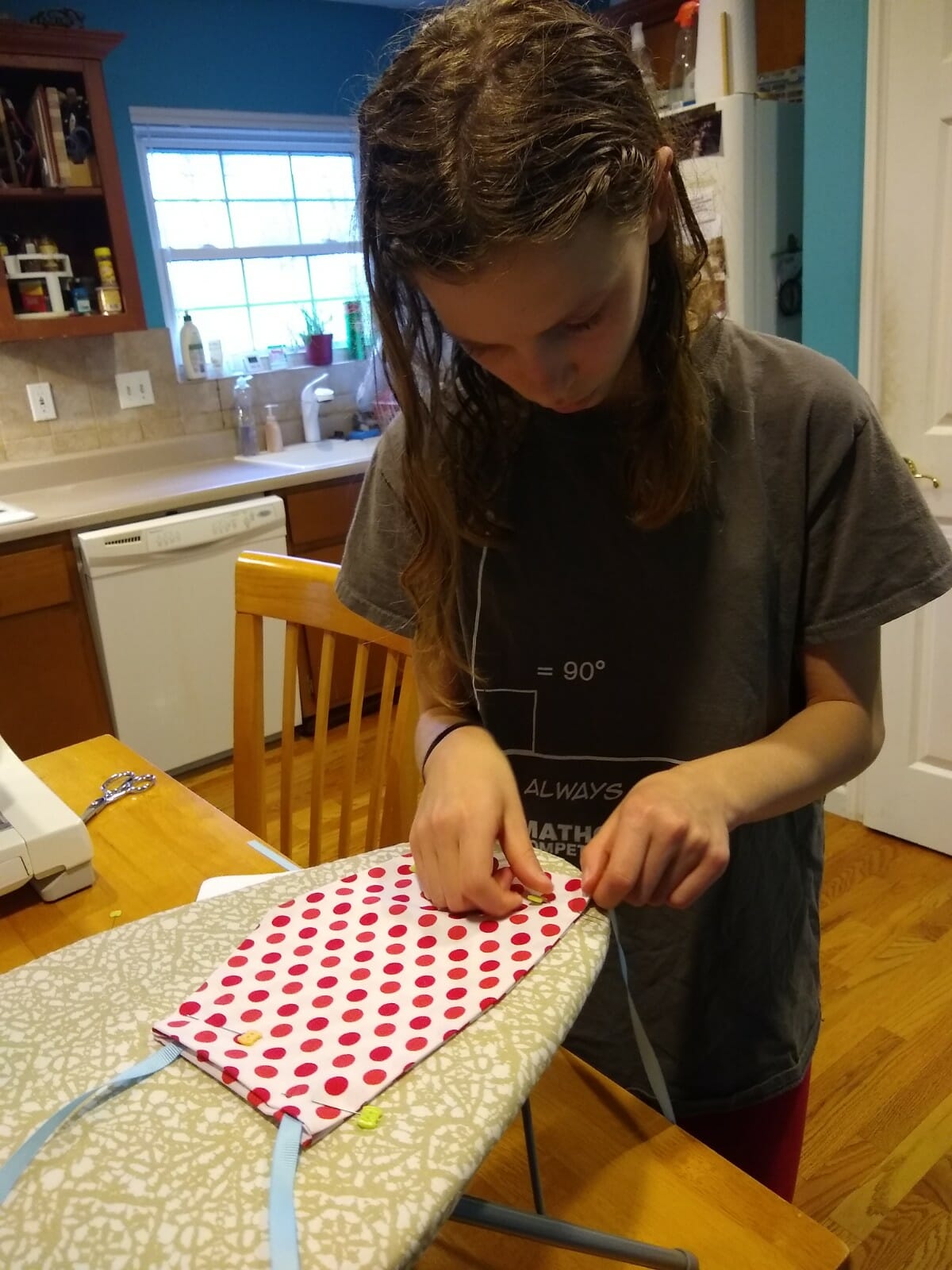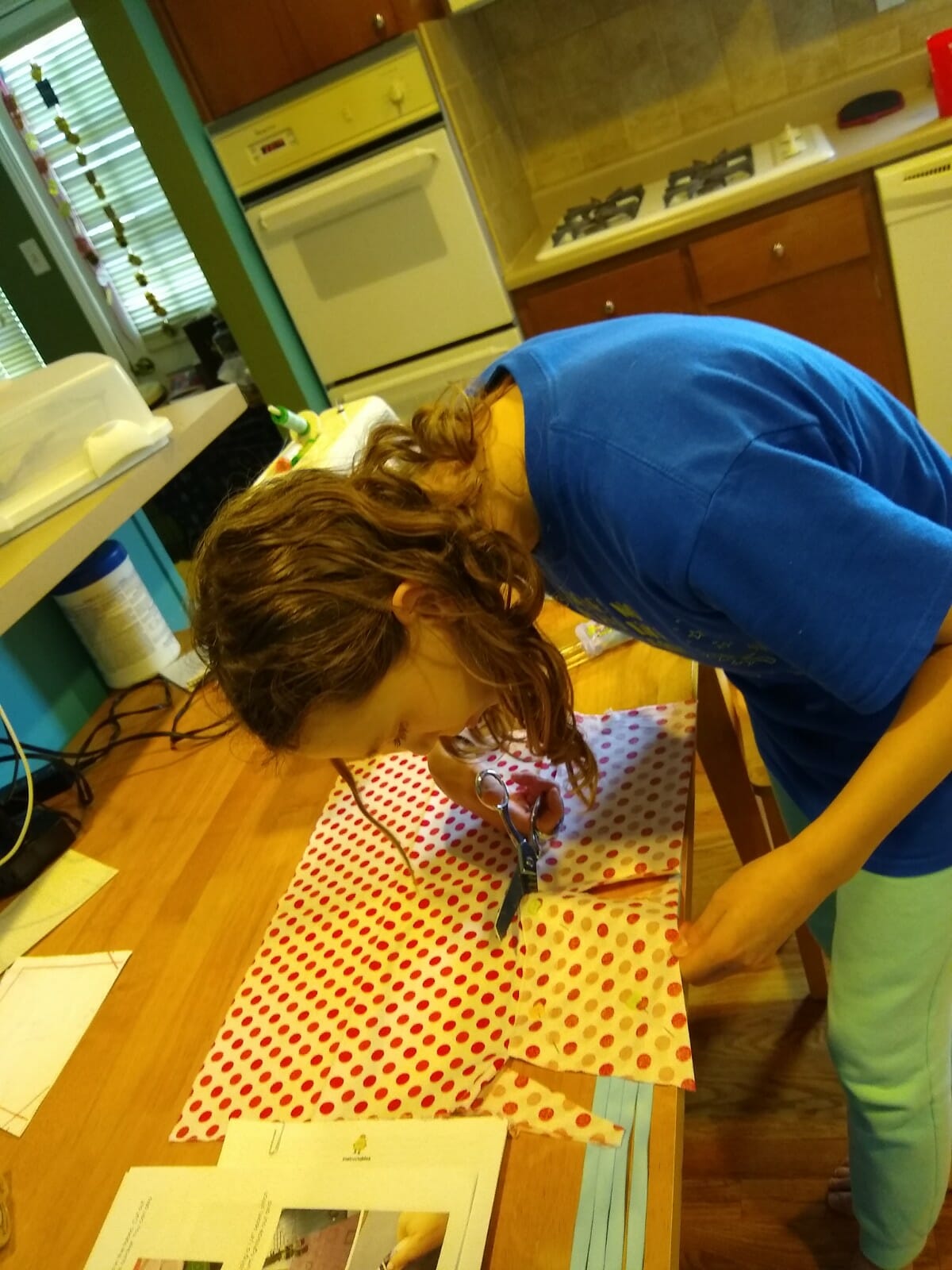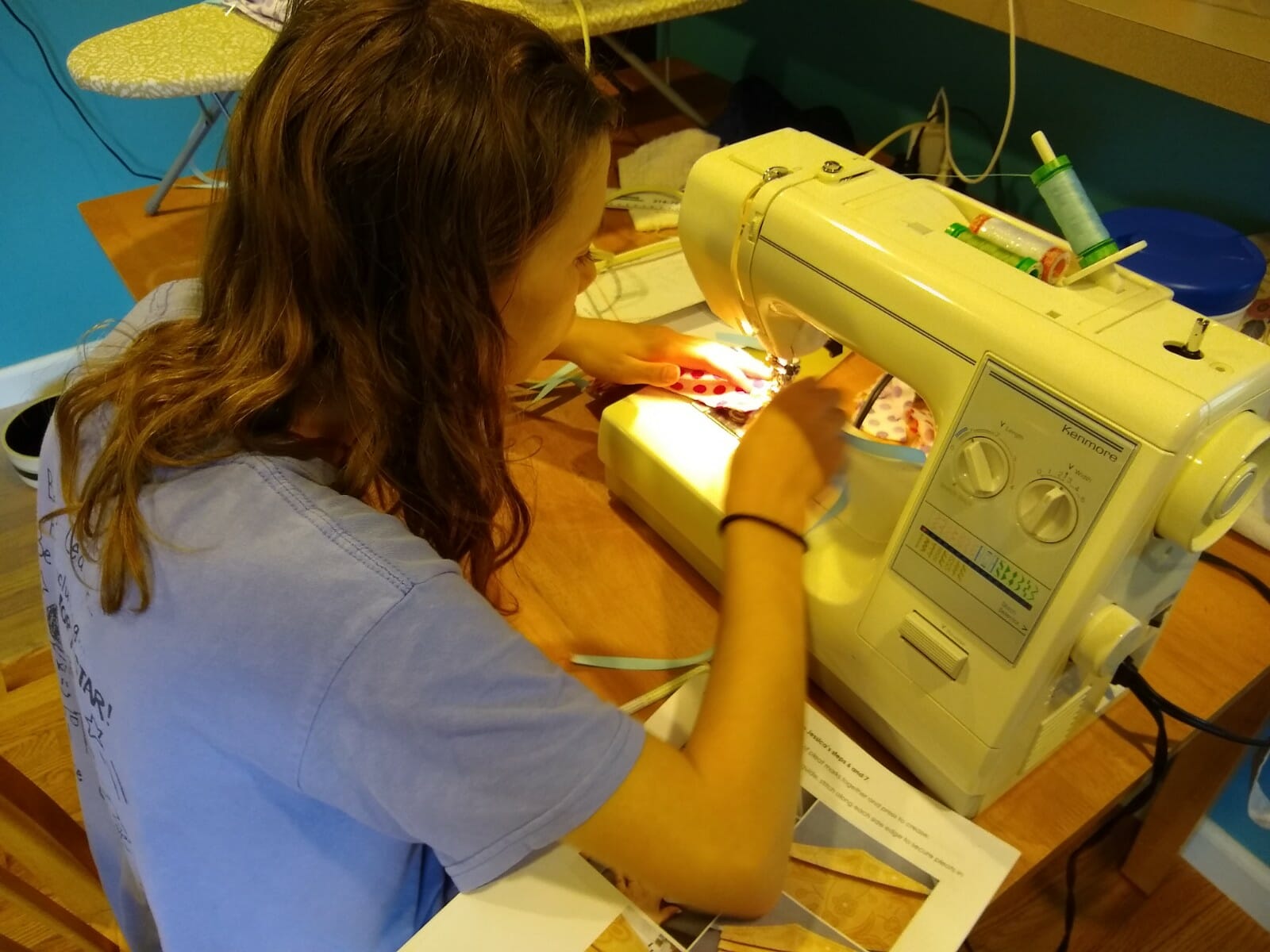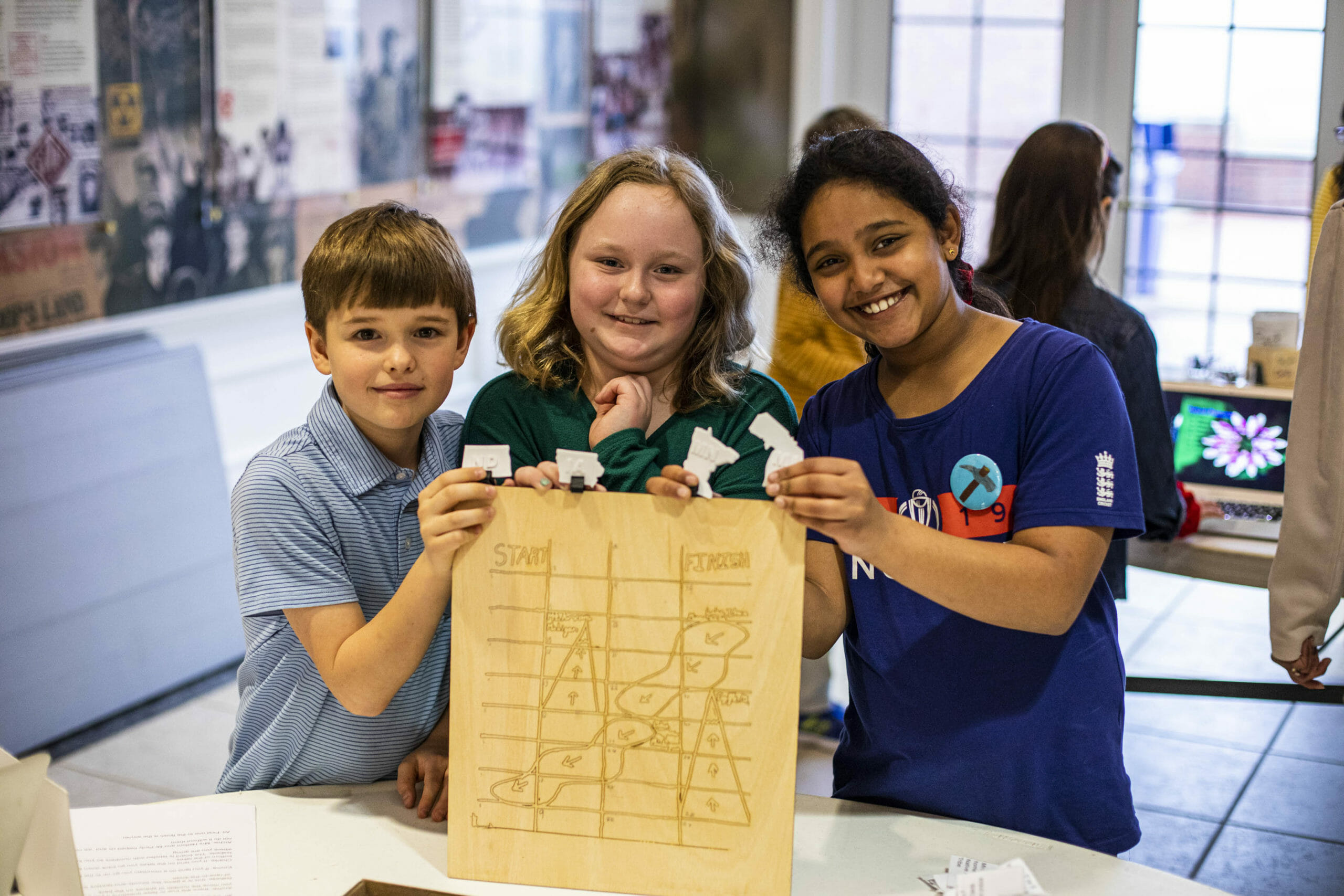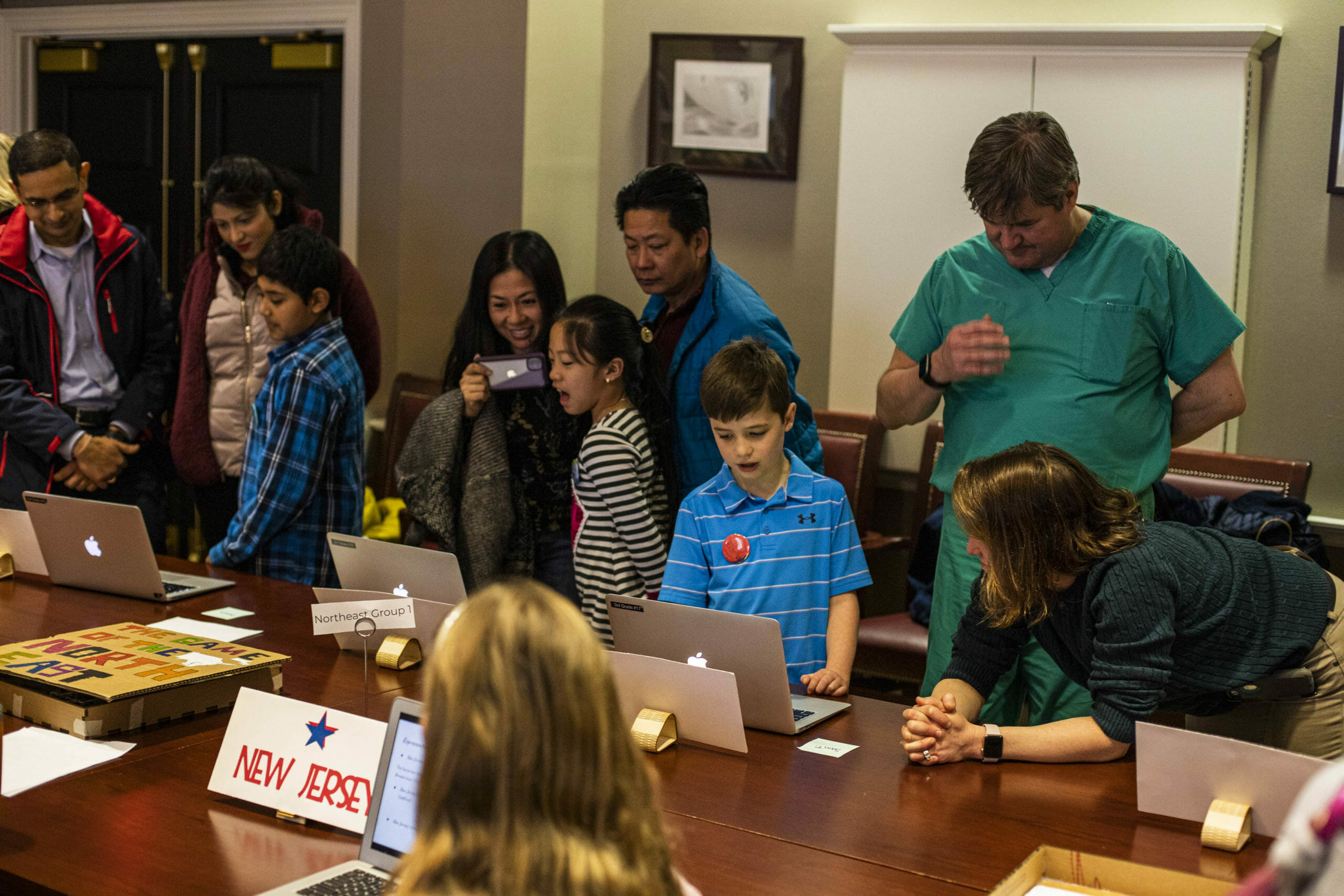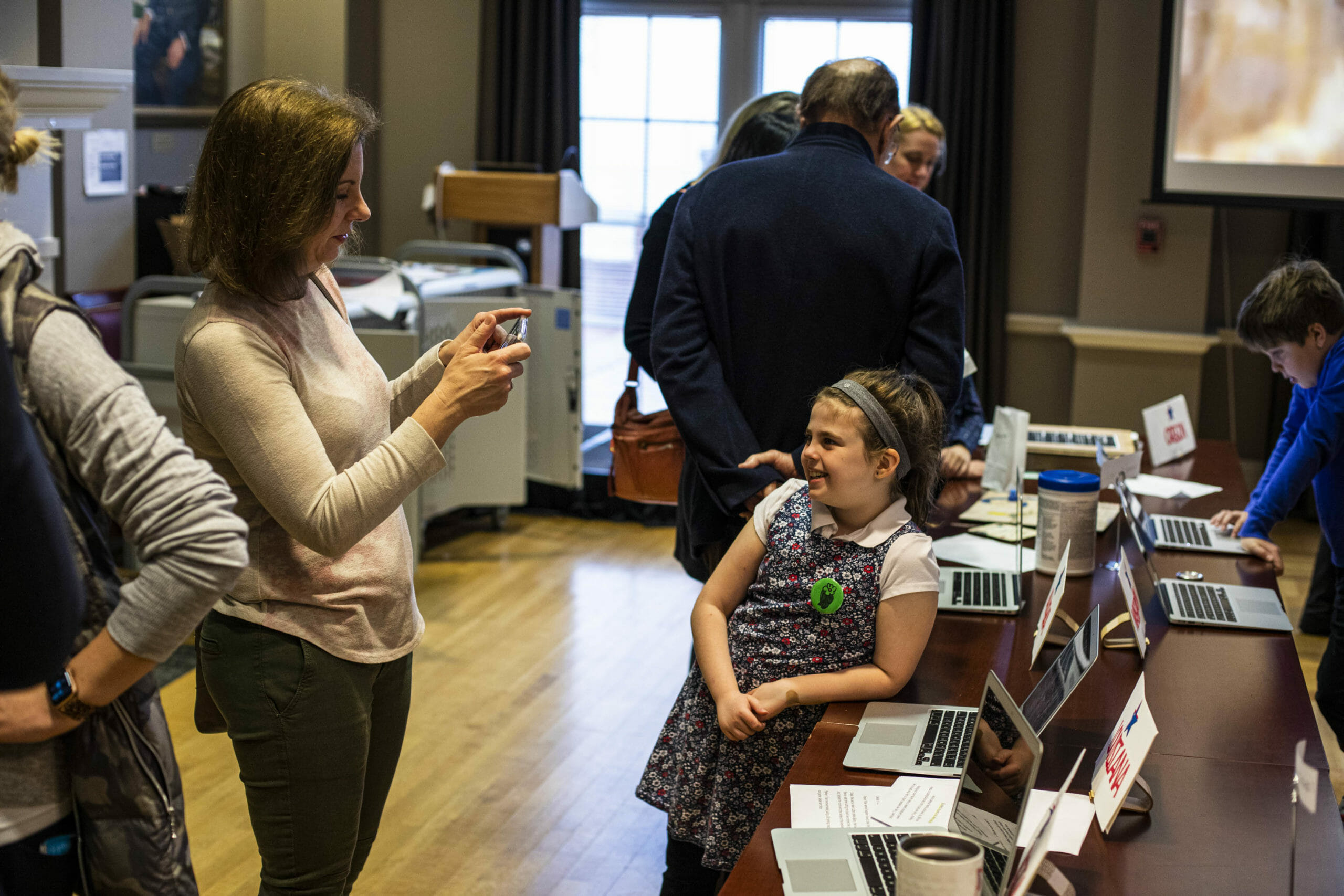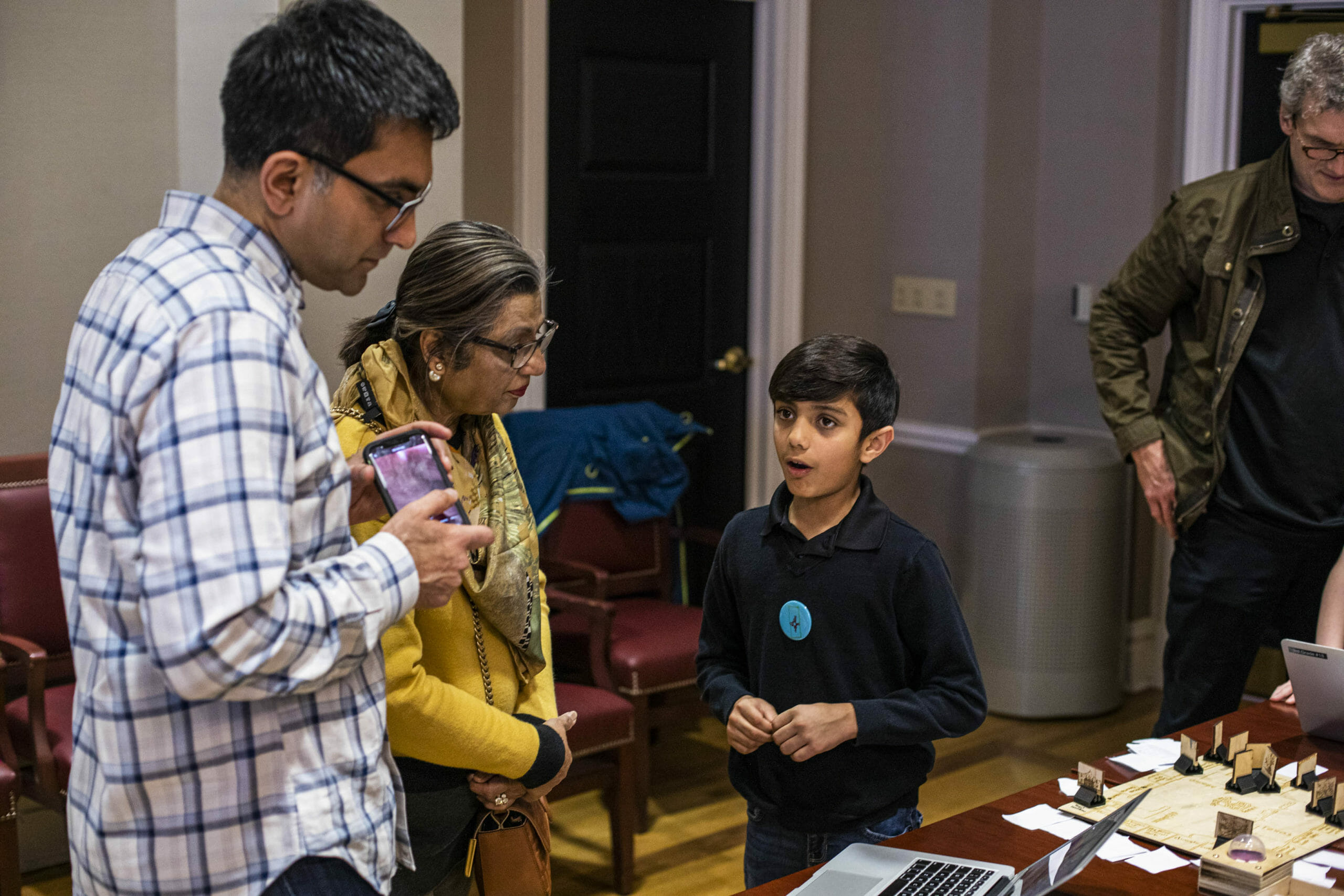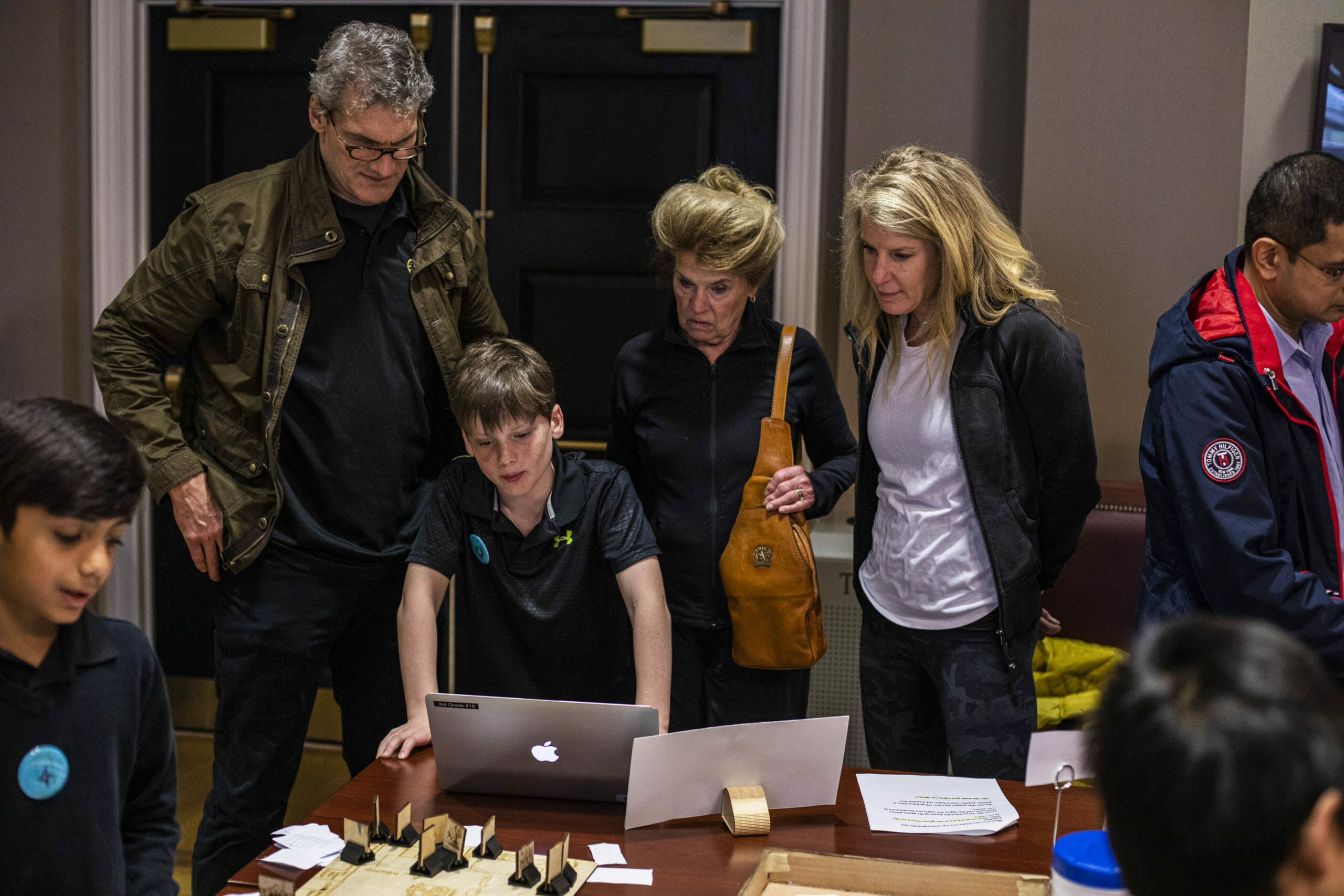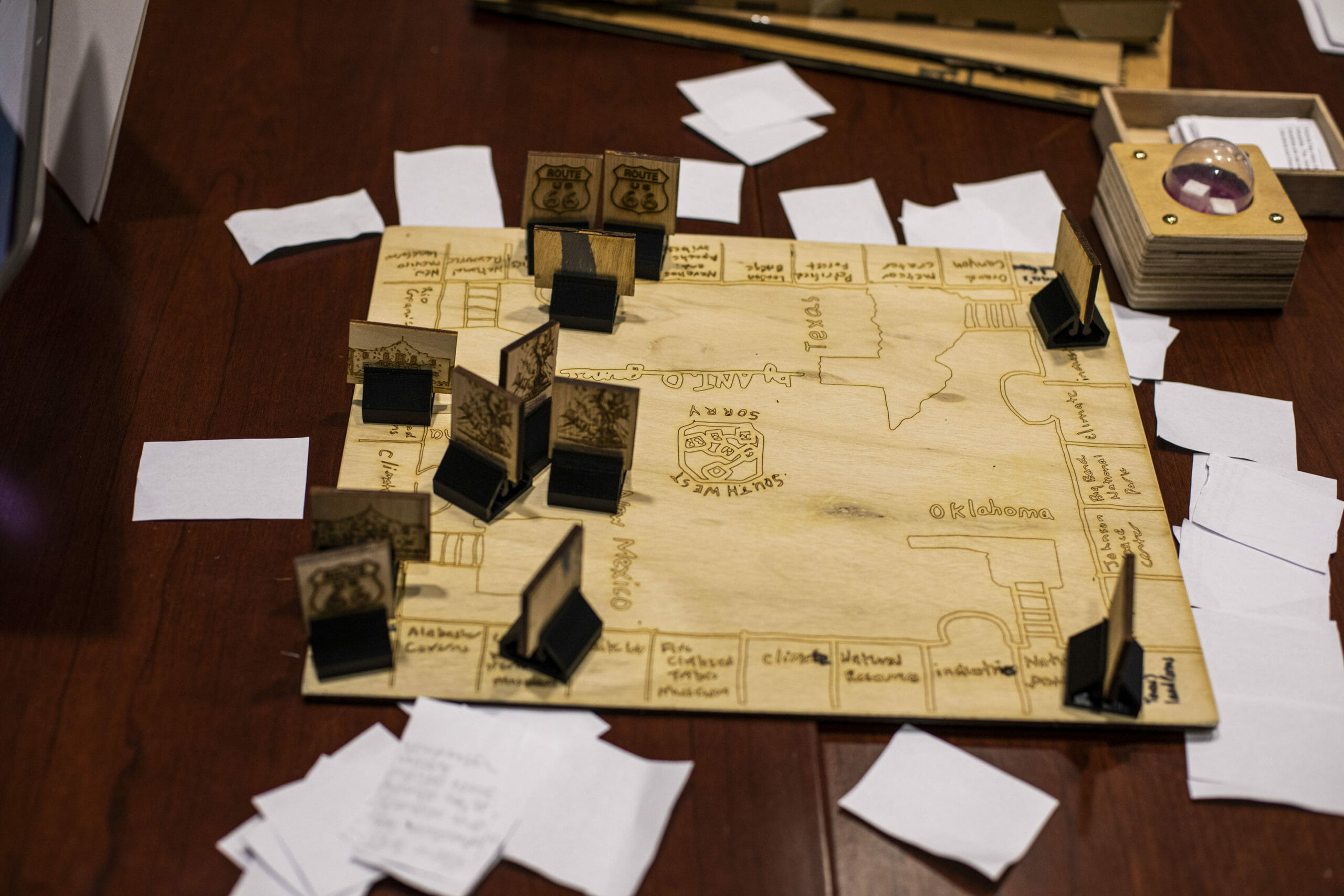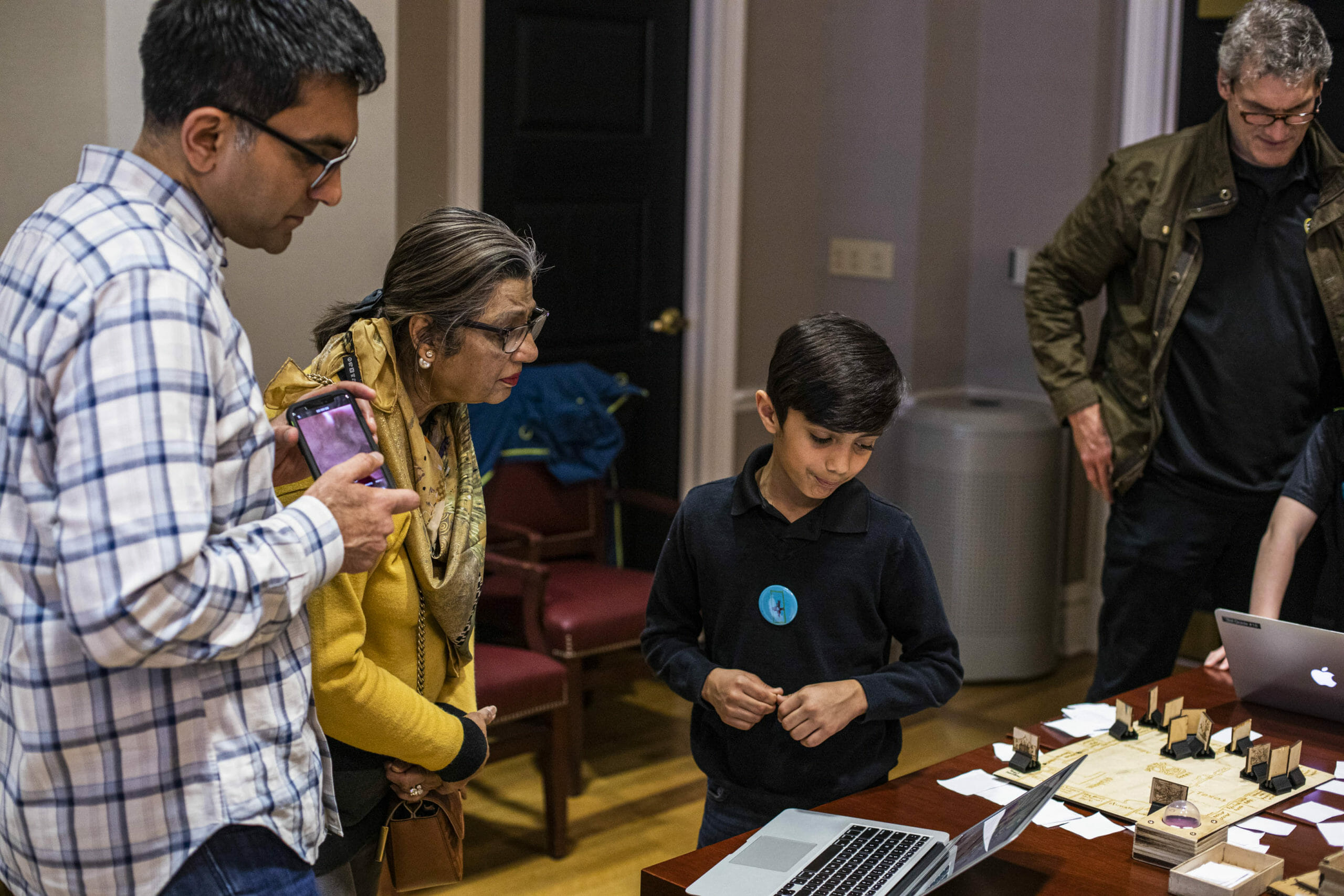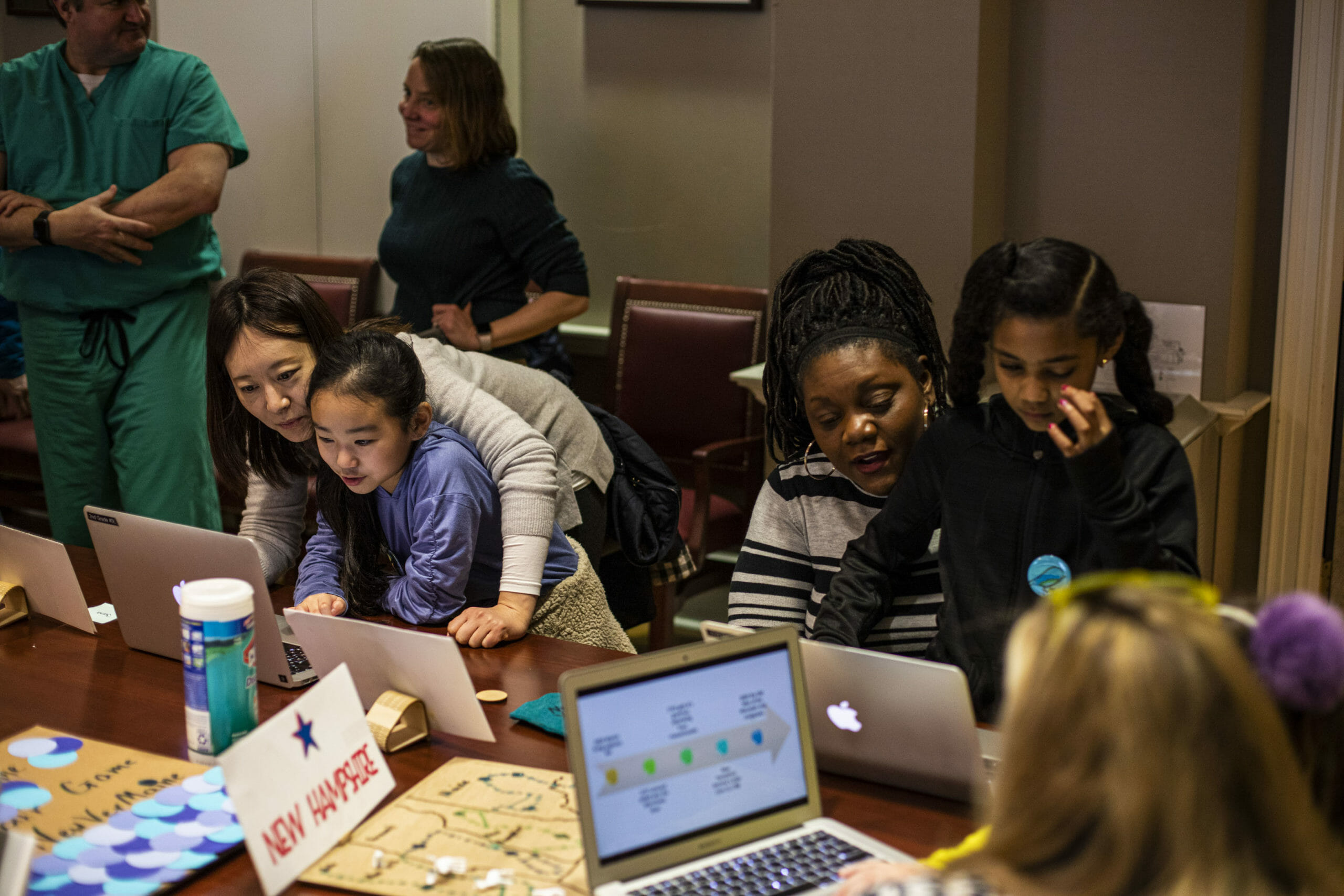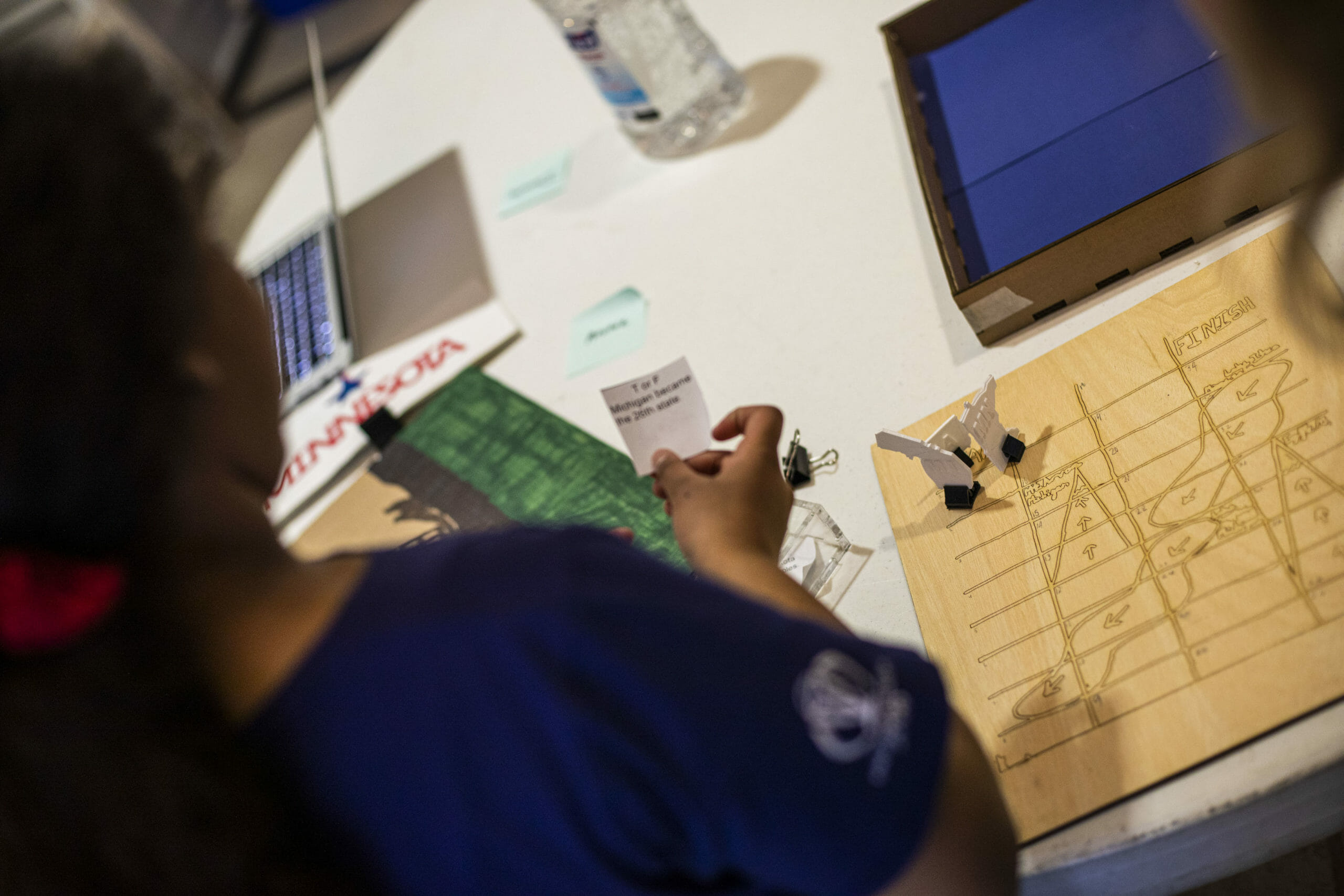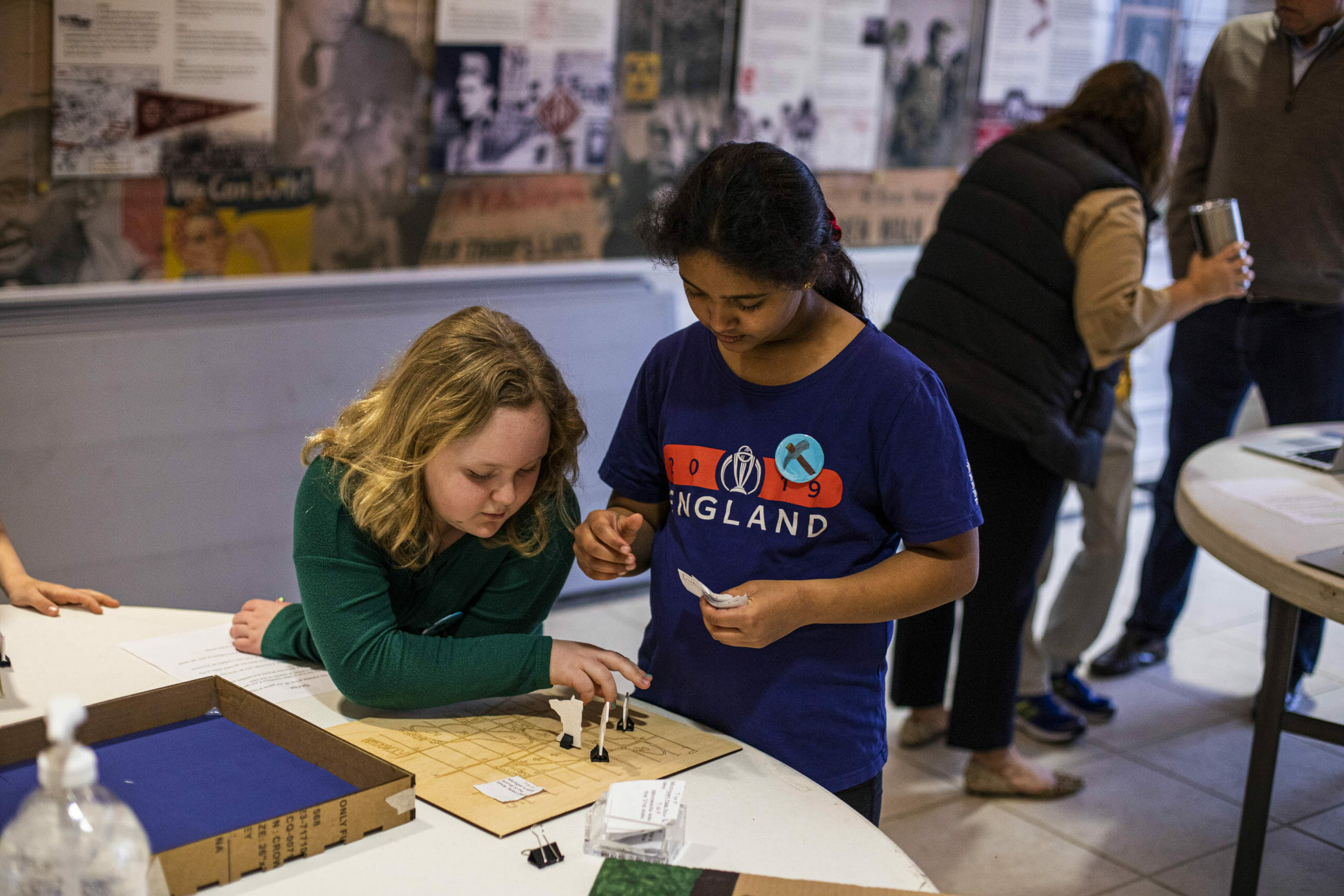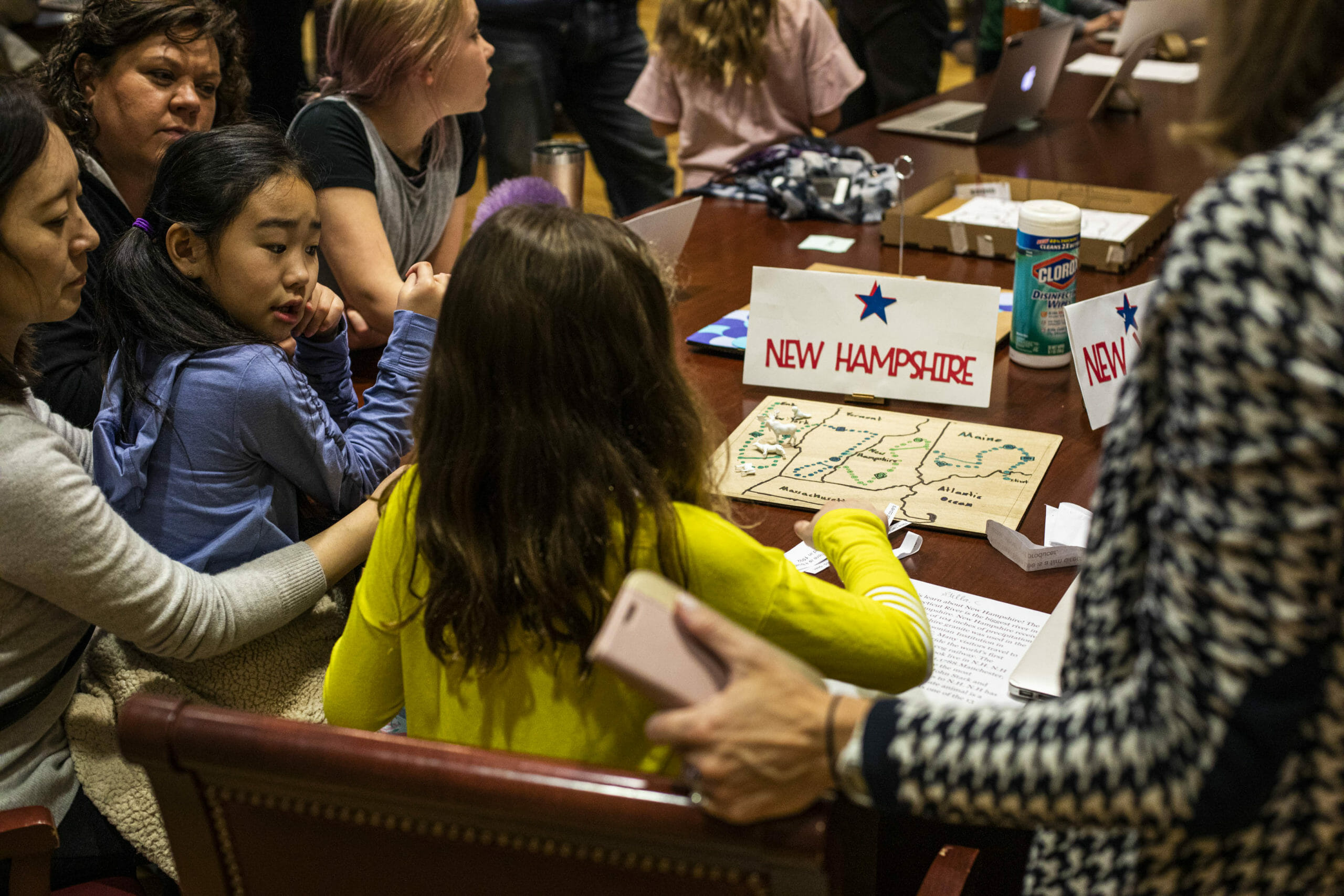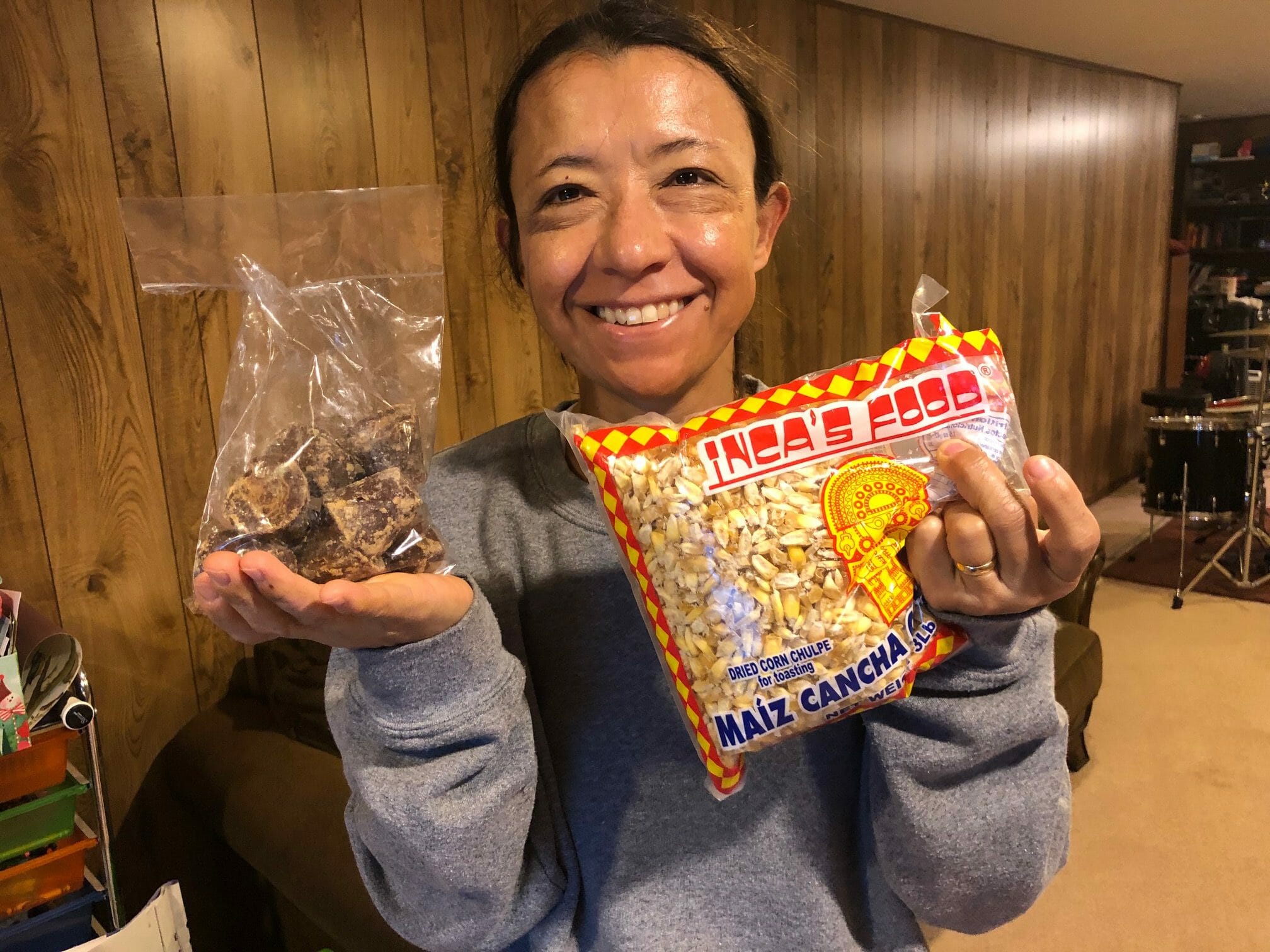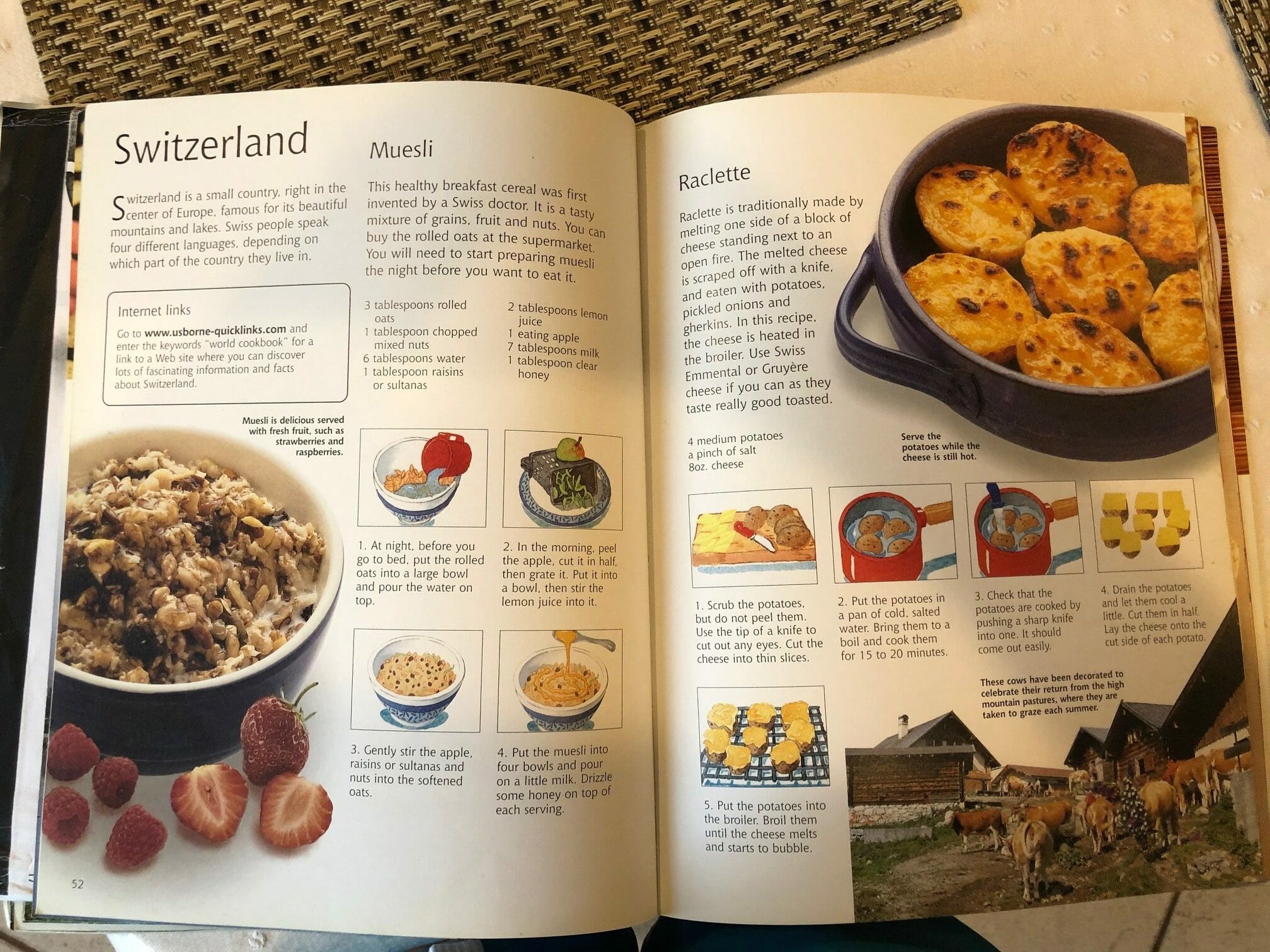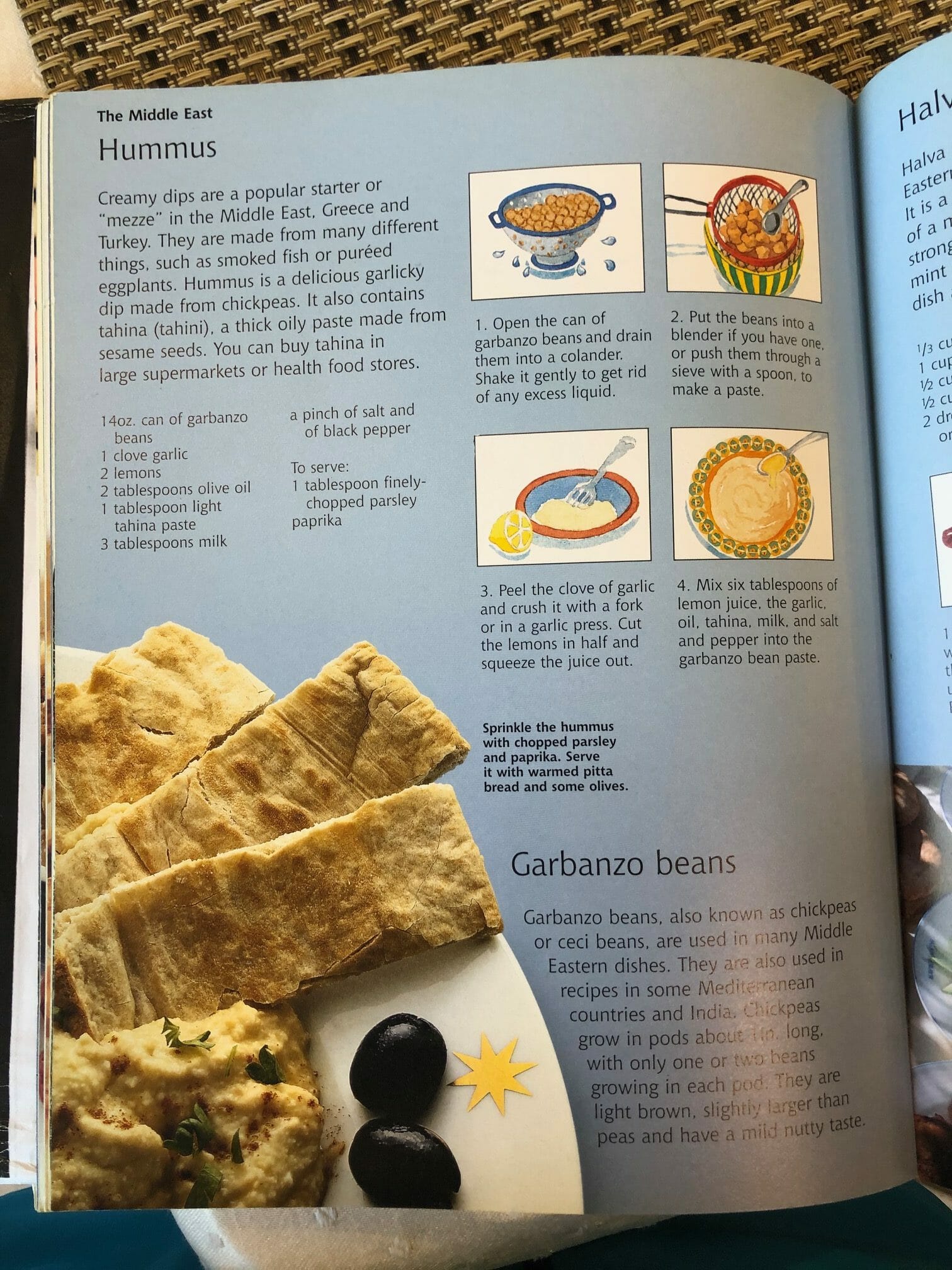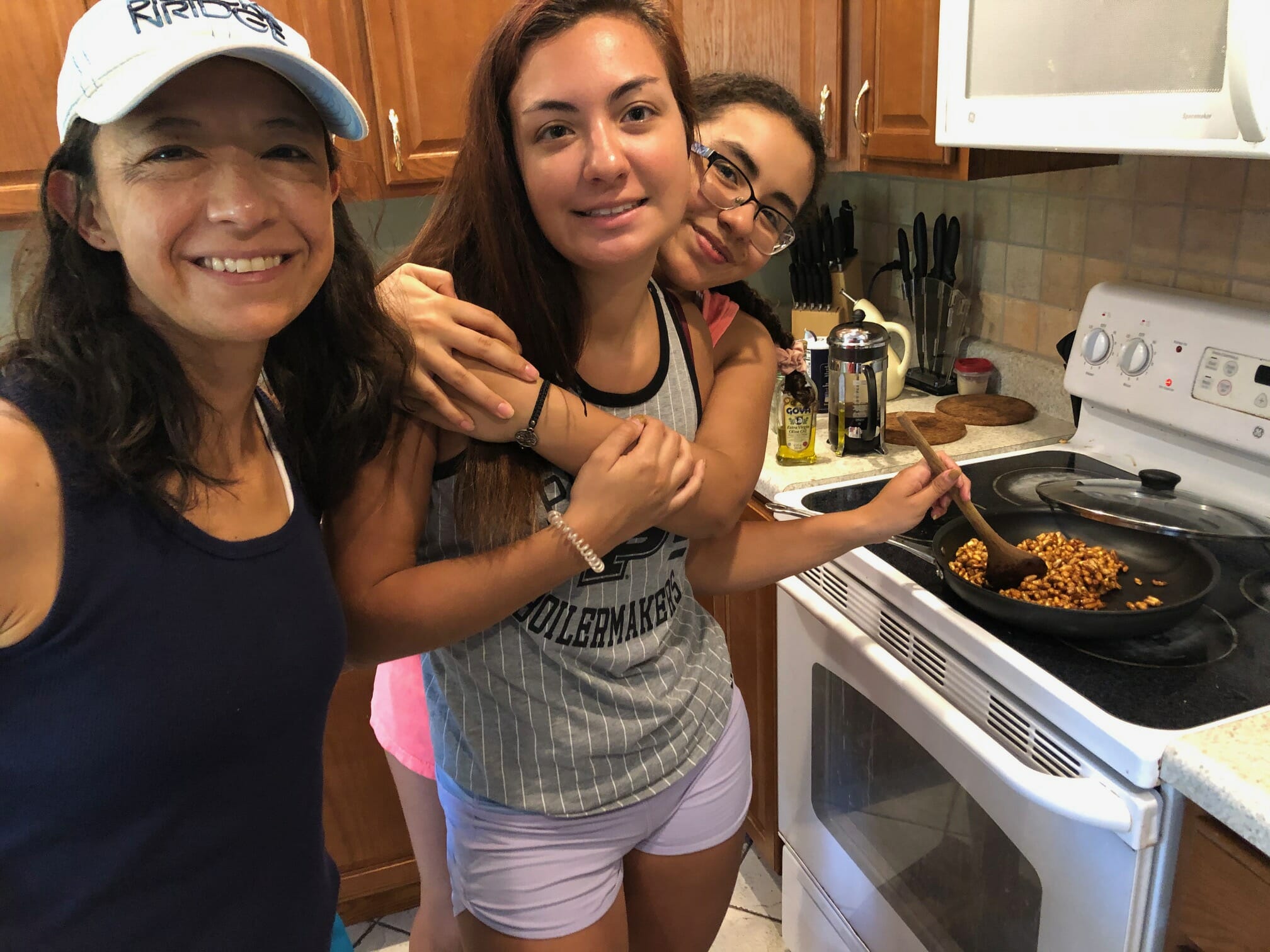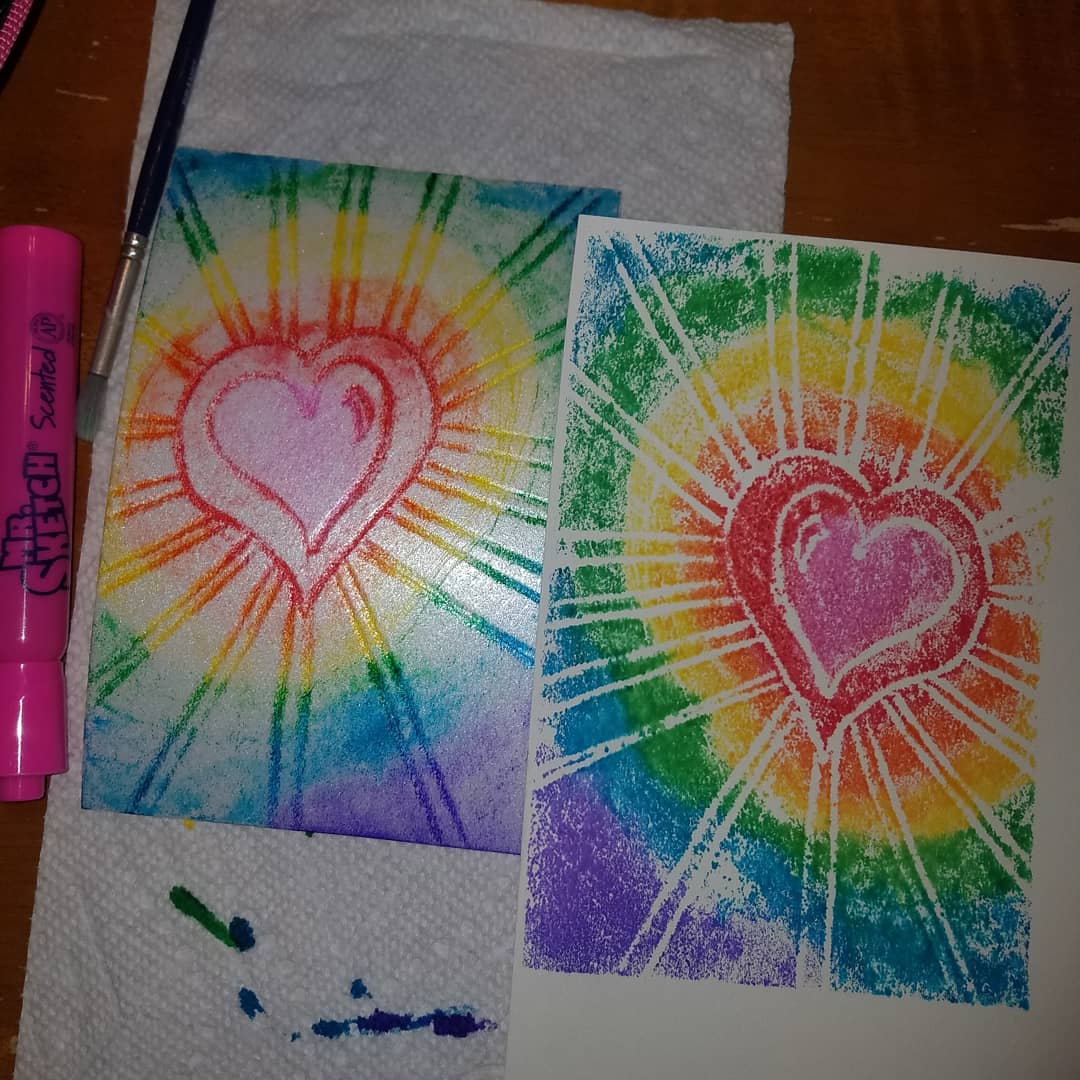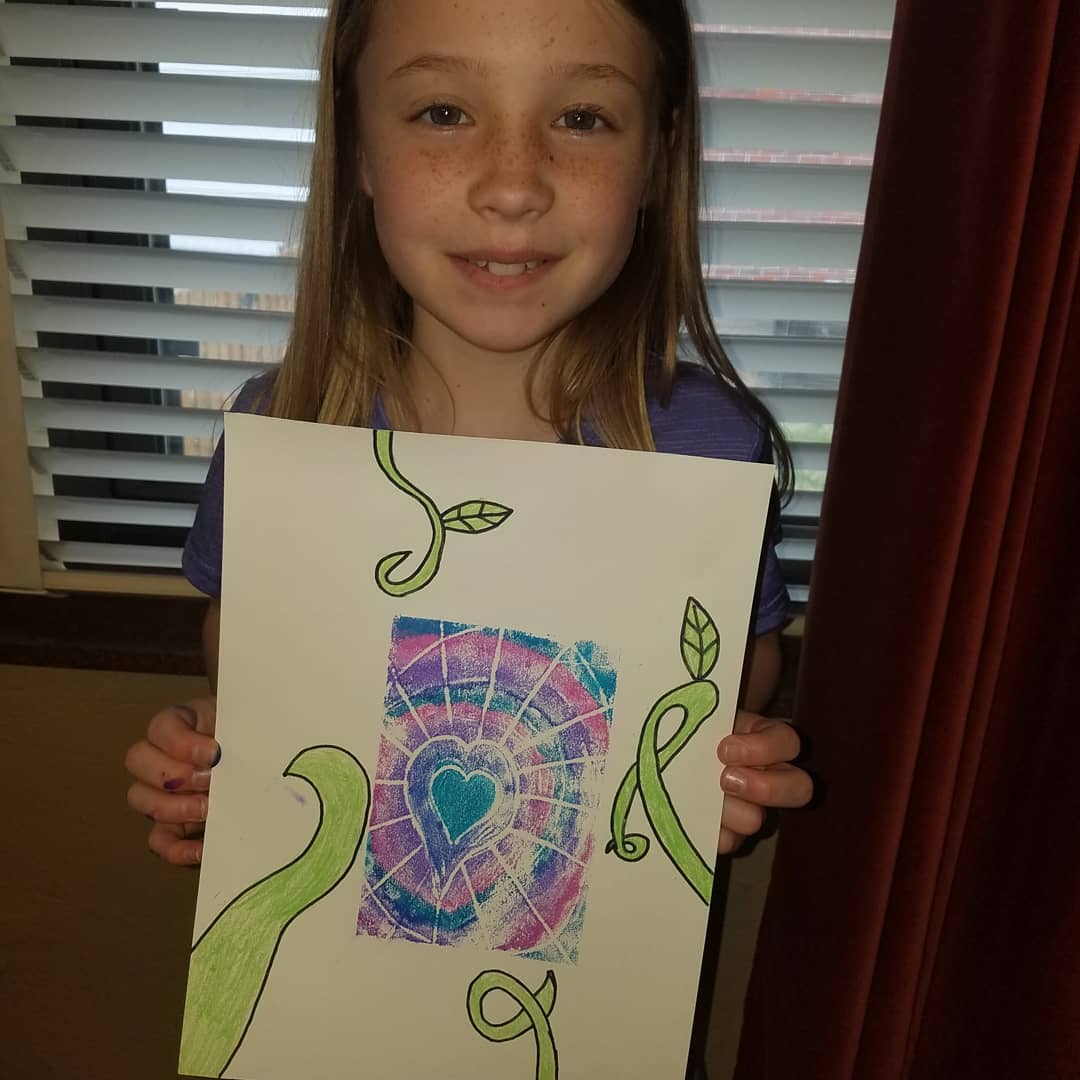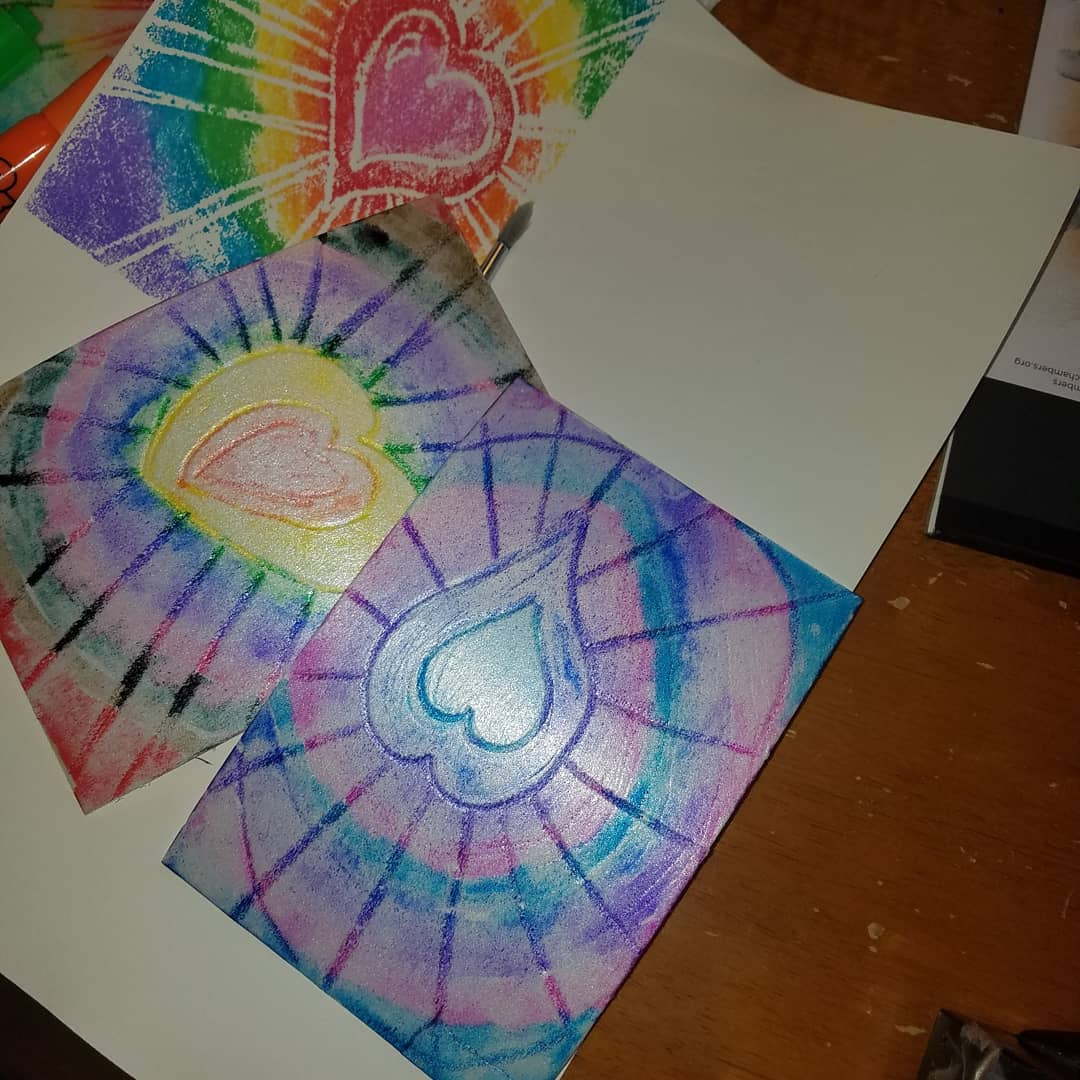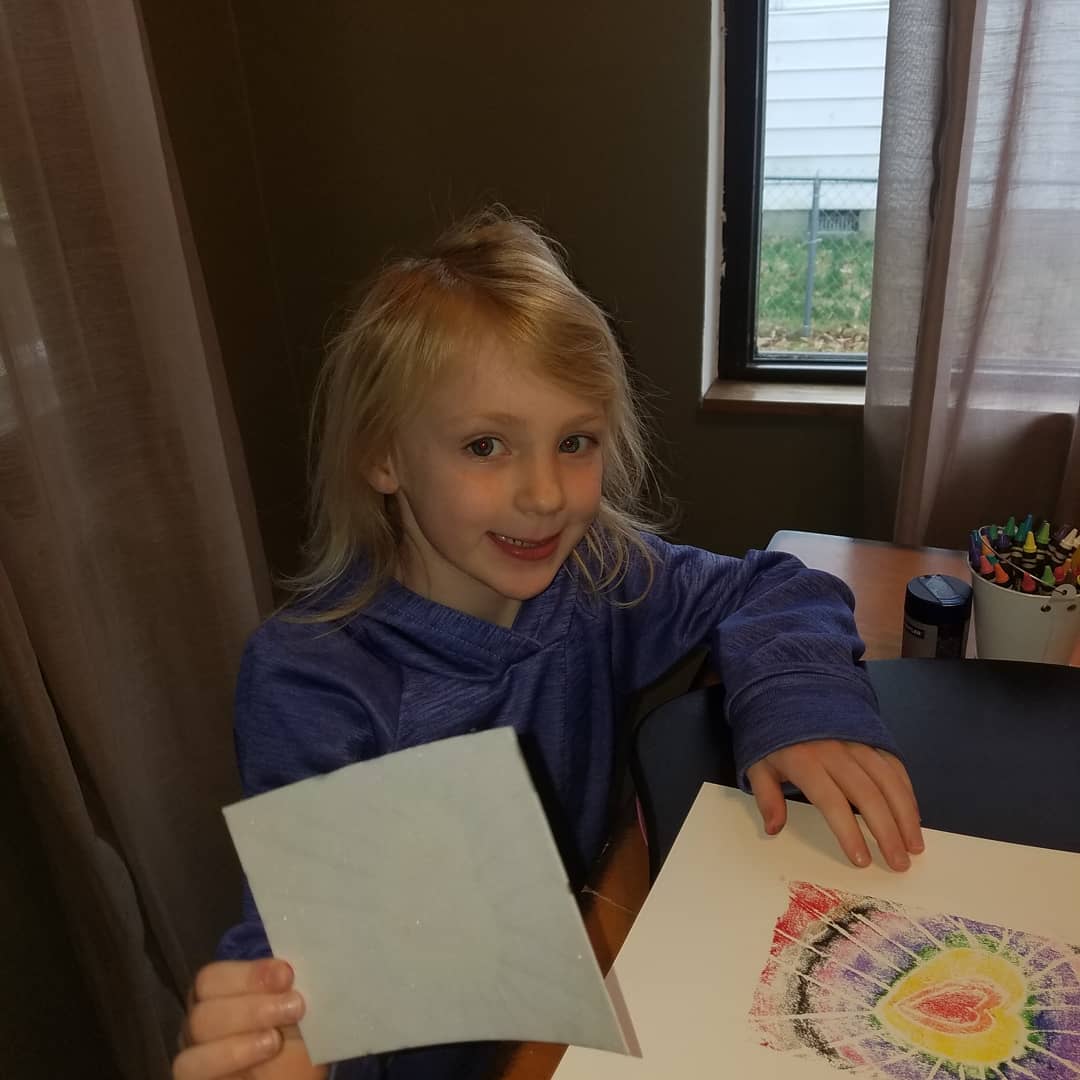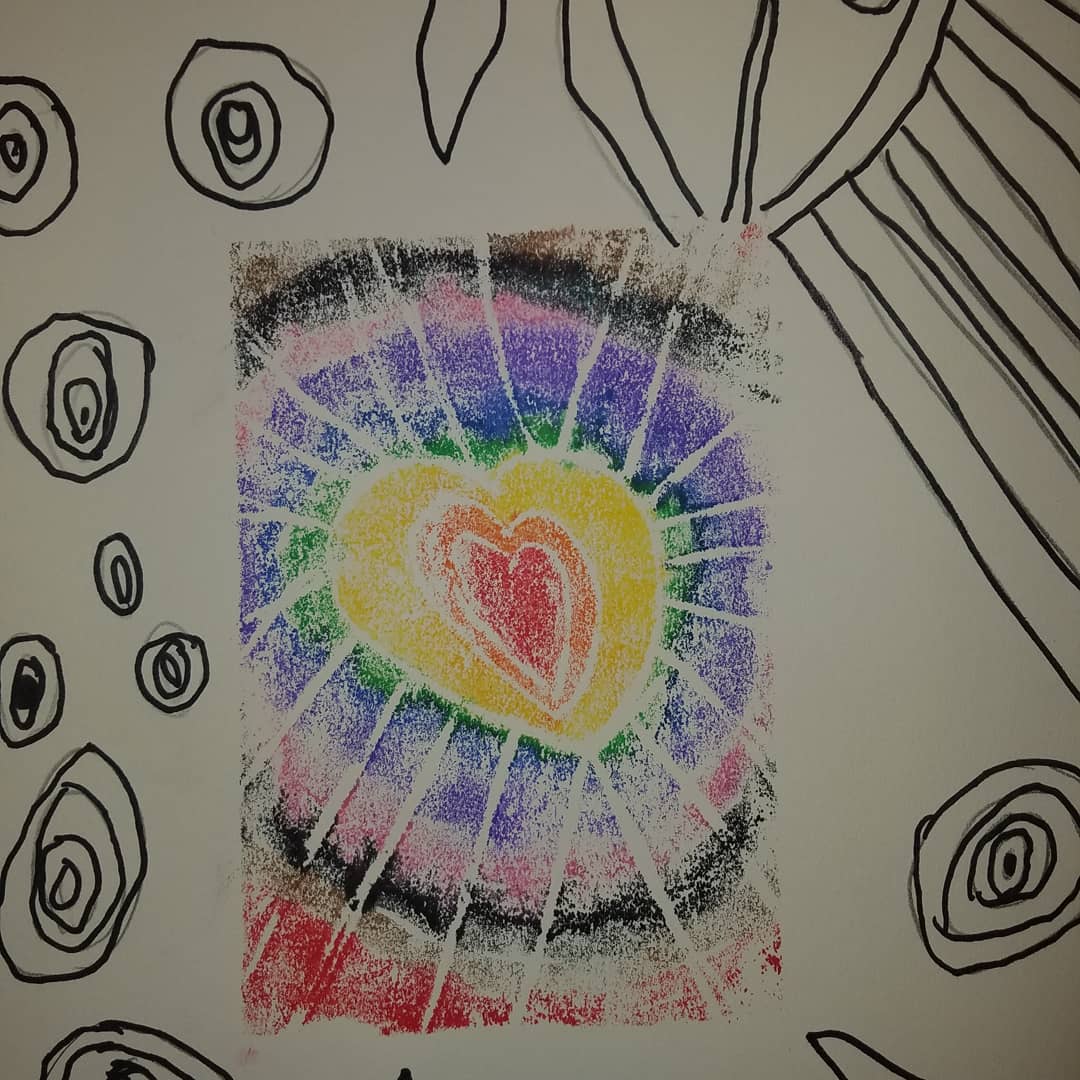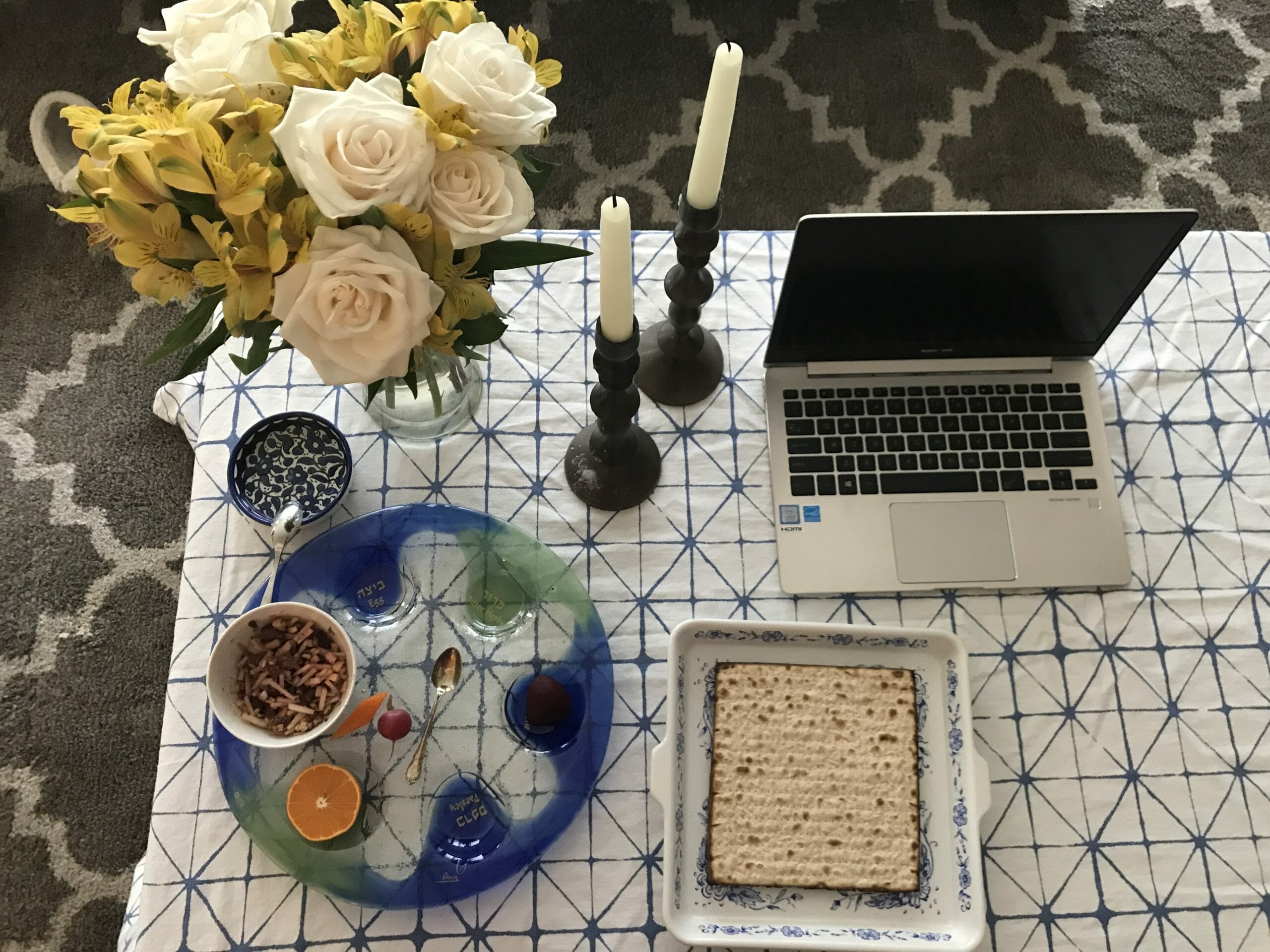Not only have our faculty and staff embraced distance learning, but they’ve even found ways to make this time at home fun. Many are parents and grandparents themselves and are always on the lookout for another engaging, creative, at-home activity. Check out the plethora of ideas below for activities to try at home with your own loved ones!
Middle School Math Teacher Dustin Delfin and his four-year-old son ‘visited’ MICDS recently by recreating Danforth Hall using pieces from their LEGO collection. Ever the math teacher, Mr. Delfin reported, «My son experienced some hands-on learning by counting LEGO block studs; categorizing pieces by color, shape, and size; and building polygons.» If you can’t be on the MICDS campus at this time, you might as well build it with LEGOs!
Did you know that you can be a citizen scientist right now from the comfort of home? Middle School Math Teacher Ms. Krystal White shared this article from NBC News about how you can count penguins in Antarctica from space to help scientists as part of the Penguin Watch project. Now might be the perfect time to become a penguin detective and contribute to a global research project!
Ms. White and her daughter have also been making cloth masks and giving them to neighbors. Her daughter thinks the masks look like jellyfish and we agree, but what a wonderful way to help others from your own home!
If you’re feeling tired from spending hours each day on the computer, Ms. Summer Beasley, Lower and Middle School PE Teacher, has just the dance for you! Ms. Beasley introduced the BrainDance to our community this week. «Developed by Anne Green Gilbert, the BrainDance is a series of exercises comprised of eight developmental movement patterns that healthy human beings naturally move through in the first year of life. As babies, we did these movements on our tummies, sides and backs on the floor. However, cycling through these patterns at any age, daily or weekly, while sitting or standing, has been found to be beneficial in reorganizing our central nervous system. Repeating these patterns over time may help us fill in any missing gaps in our neurological system due to birth trauma, illness, environment, head injury or not enough floor time as a baby. The BrainDance offers benefits such as improved mood, reduced stress, increased alertness and concentration. It can be used at home by yourself or with the family, at school, in the office as well as in the dance studio. It may also be used as a warm-up for any physical or cognitive activity; before tests, performances and presentations; after sitting for long periods of time; as a break during computer work and TV watching; and to increase energy and reduce stress. It is a centering body/brain movement tool for brain reorganization, sensory integration, oxygenation and recuperation.»
Follow along in the BrainDance video below led by Ms. Beasley and her daughter. Give it a whirl!
Remember when the 3rd graders learned about the United State regions in an interdisciplinary, PBL unit? After conducting research and 3d printing their very own board games with the knowledge they gained and with guidance from Upper Schoolers in the Upper School MakerSpace, they played their board game final projects with their parents, guardians and MICDS community members prior to spring break. Now, those games are keeping them busy in their time at home!
Some families are cooking up a storm with this time at home! Lower School Spanish Teacher Soledad Villagomez shares, «My family is cooking recipes from different countries and learning about those countries.» Her family recently made tostado enconfitado, an Ecuadorian dish that has dry corn, brown sugar (panela) and oil. Check out a few of their recipes that Ms. Villagomez was kind of enough to share below!
If you’ve been outside in the fresh, spring air lately, chances are that you’ve stumbled upon some chalk phrases and art masterpieces. This week, Director of Student Services Vicki Thurman shared about the «Chalk Your Walk» initiative with Upper Schoolers. To encourage others, communities throughout the country are writing encouraging or inspiring messages on their driveways and sidewalks. Watch the video below on chalking your walk from CBS New York. Perhaps you can join the campaign and add a smile to someone’s day!
Out and about in the local neighborhood of our Upper School Librarian Ms. Katie Voss is another notable neighborhood gesture. At 6 p.m. on certain nights, families in Kirkwood are banging pots and pans to thank first responders. See the Fox 2 News segment below that features Ms. Voss’ kids talking about the boisterous ritual. Voss also suggests neighborhood community-building activities: «Neighbors can draw a bear and put it in the window so that people can walk around and ‘go on a bear hunt.’ Or, they can play music ‘together’ on doorsteps like they did in Italy (although ours sounds a little more cacophonous)!»
«We have been doing styrofoam printmaking at our house,» shares Ms. Sarah Garner, Lower School Visual Arts Teacher. Materials can usually be found around the house and include a piece of styrofoam (either from a styrofoam plate or meat tray that has been washed), watercolor markers like Crayola markers or Mr. Sketch markers, a dull pencil or the end of a paintbrush, and paper (thick paper works best). Here’s how to create a styrofoam print:
- Cut the styrofoam into the desired shape (we used a rectangle shape).
- Use the dull pencil or the end of a small paintbrush to ‘carve’ a design into the styrofoam. You can tell from our photographs that we went with a heart theme.
- Color the styrofoam with the markers. It is ok if some of the colors overlap or go out of the lines; that sometimes creates the best image.
- Once the entire piece of styrofoam is colored, get your piece of paper damp with 2-3 sprays or sprinkles of water and then wipe with a dry paper towel.
- Press the styrofoam (color side down) onto the paper and rub really hard making sure to rub the entire piece.
- Pull off the styrofoam, and you now have a print!
You can then rinse and dry your styrofoam and print as many times as you want, or add a background around your print. Happy printing!
MICDS faculty are also being creative when it comes to holidays and religious observances. Mr. Lev Guter, Middle School Math Teacher, put his newfound Zoom skills to the test on Wednesday when he and his spouse organized a Passover Seder via Zoom (a «Zeder»). This allowed for their family in St. Louis and Boston to be together virtually for Passover. «I used my Zoom expertise from teaching classes to help facilitate the virtual Seder,» Guter shares. «My spouse used the ‘share screen’ function so we could all read an online haggadah (Passover reader) at the same time, and we all took turns reading aloud.» Two of the participants even changed their video background to be a picture of the Egyptian desert. «The Seder always includes two instances of washing hands, which frankly is something we tend to skip over. This year, we made sure to highlight that part along with the many other steps and stories in the haggadah.»
St. Louis Public Radio posted a story about the Guter Zoom Sedar plans here.
Whether it’s trying the BrainDance, counting penguins, cooking something new, creating something beautiful from styrofoam or celebrating a holiday in a different way, we hope these ideas bring some love and joy to your home like they have to the homes of our faculty!

